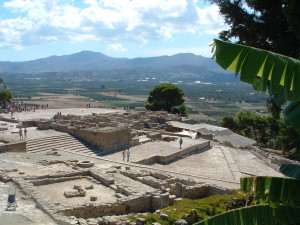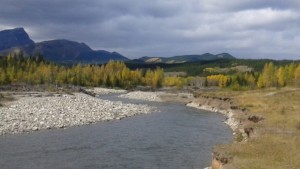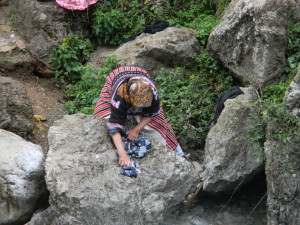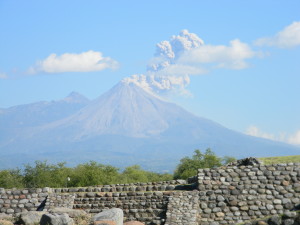I am not a criminal, I swear.
I’ve just experienced a life with a unique set of events and fields of study that, if one were given enough the correct motivation (and a healthy dose of limited moral inhibitions), the particular set of skills learned could be misapplied to one’s advantage. Fortunately, I’m in a position where the best use of these skills is writing realistic stories where the only people affected or hurt are characters.
There’s always that old writing advice of “write what you know”, but if that’s all writers did, there’d be a lot of the same old. I always liked to interpret it broader: “use what you know to help flesh out your story”.
It does help to have first hand experience with things, but in order to tell characters who know how to break locks, I don’t have to be a master locksmith. To tell characters who know how to use medicines or poisons, I don’t have to be a professional assassin. To describe characters who must infiltrate or use stealth to escape, I don’t have to be a scout or a ninja.
But having a familiarity with these concepts, and the feelings and logistics that surround them, can certainly be used in the stories to provide a more authentic experience.
So how do my characters know how to pick locks, poison, or sneak around? Because someone who was obviously not a good friend once told me to have an interesting life.
Back in middle school, I was your typical latch-key kid. I’d come home off the bus, pick up the mail, and let myself into the apartment. But on more than a couple occasions I forgot my key. Easy enough fix, you can use your student ID to let yourself in (seriously, use the deadbolts). But another time, the deadbolt was locked for some reason, which meant I wasn’t going in through the front door without property damage (and I didn’t have a drill handy anyway).
But I could climb over the balcony. Turns out that door was locked, too. With some bobby pins, tweezers, paper clips, for some reason the metal file on nail clippers, and a rudimentary knowledge of tumblers, I was able to get in.
Another time in gym class, someone decided to put their lock on my locker to keep me from getting my things. I got in, and kept their lock so they could never lock up their things until their parents bought them a new one. When they confronted me on it, it was already in the trash and I could honestly say I didn’t know what happened to it.
“Why would I have your lock? That’s a weird question to ask, did you give it to me somehow?”
Getting gently vicious at the middle-school gym. Add in another skill-set for my characters to learn.
Now, poison…I don’t have a story for poison. I’ve never poisoned anyone without it being a written order from a doctor for a dose low enough to be within the therapeutic range for the purpose of providing medical treatment. So, any medicine, really. Morphine. Chemotherapy.
I liked studying toxicology in the library, hoping one day to help people with overdoses after some friends got into drugs, and drinking was a problem within the community.
There was a greater job market and more marketable skills in medicine, so I learned more about medicines through the certification to be a pharmacy technician and then getting my nursing license. But with those studies comes the knowledge of the “Therapeutic Index”, and the difference between the toxic dose and the lethal dose. The “dose makes the poison” as the saying goes, and the dose that affects the body varies based on the mode of delivery.
Does the liver filter out most of it? Can you add in another substrate that will tie up the cells in the liver that detox the blood, thus leaving the chemical within the system to build up to lethal doses?
There’s a reason they make doctors take the “First, do no harm” oath, ‘cause oh, man, could we ever.
…also, people who took anatomy or who have hunted know how to dissect.
So. There’s that.
Horror writers, am I right? We’re fun folk. I get invited to so many parties. Someone please invite me to a party. I swear I’m charming and won’t bring up dissection again.
Stealth I learned from having to navigate the school, my home, the neighborhood, and the woods.
School because I didn’t make many friends, and if people noticed me it often didn’t end well. Where were the exits? How do you make a distraction? How do you blend into a crowd?
Home because …because.
Neighborhood because I often house-sat with my friend, and she’d often take long walks at night past curfew. I didn’t want her to go alone, so I’d go with her. We’d wander around the neighborhood and hide from passing cars or people.
Woods because I was involved with a search and rescue team. We were looking for people as a group, so obviously we wanted them to know we were coming, in case they wanted to be found.
…Did you know people who don’t want to be found hide in trees? So that’s what I used the night we had a squadron-wide bottle rocket war by the lake one summer.
We took turns ‘defending’ and ‘attacking’ a trailer hooked up with a security camera.
When my team, Bravo, was on ‘defend’, I snuck out to go scout out where Alpha was and what their plans were.
They didn’t expect to find me in the trees. Humans don’t usually have predators above them, so they rarely look up. To start, I was wearing overalls and a t-shirt over my swimsuit. The overalls made noise, so I took them off and kept the swimsuit bottoms. Black stands out at night, and dark blue is a much more natural color, so one of the boys lent me his shirt that I tied at my waist to avoid swishing or catching. I had a flashlight nestled in my chest to not only hold it but keep the noise down from it swinging.
I learned their plans, took off my boots to hide the noise, and took the dirt path back to the trailer to warn my team. Because Bravo was prepared, we could successfully defend. Like having me fire bottle rockets from the trees. They really weren’t expecting that.
When it came time for Bravo to attack, we had already defended, so we learned where the security cameras were and what their range was. We definitely got the better end of that coin toss.
The rule was, defending team started out inside, and we waited 15 minutes to give people time to spread out and get far enough away. I hid in the bushes and avoided the guards, then covered the cameras with my old shirt and overalls by staying just out of range. Sent out a rocket for my team to come out of hiding.
Alpha rushed outside to defend against the ambush, and with the majority of their forces distracted, I got inside and ducked past the guards. Got on the speaker: This is our castle now, and I am its Queen.
Because of all of these experiences, I can describe not only the logistics of what goes into less than reputable character actions, but the feelings they might have as they do so, whether the first time, or after it’s become second nature.
So think of what things in your life might not immediately translate into something you could put on a resume, but you still might be able to use in your story.





 The year was…well, never mind that. Let’s just say that it was Jr. High and whenever the word “fantasy” was spoken among the pre-adolescents in this particular community, nobody thought of books. But, we had an amazing librarian. No, he didn’t look like the guy in the picture to the left. He was tall, gangly, and to my twelve-year-old self, he was old. I believe he wore glasses, but he had a ready smile, seemed to love hanging out with obnoxious pre-teens and teens, and loved literature in all it’s forms. Our library had romance books, fantasy, science fiction, classics, mystery, non-fiction, and a wide variety of all of the above. He knew where every single genre and title could be found, precisely. He also had a wide array of “disallowed” books and encouraged students to get parent permission to read them.
The year was…well, never mind that. Let’s just say that it was Jr. High and whenever the word “fantasy” was spoken among the pre-adolescents in this particular community, nobody thought of books. But, we had an amazing librarian. No, he didn’t look like the guy in the picture to the left. He was tall, gangly, and to my twelve-year-old self, he was old. I believe he wore glasses, but he had a ready smile, seemed to love hanging out with obnoxious pre-teens and teens, and loved literature in all it’s forms. Our library had romance books, fantasy, science fiction, classics, mystery, non-fiction, and a wide variety of all of the above. He knew where every single genre and title could be found, precisely. He also had a wide array of “disallowed” books and encouraged students to get parent permission to read them.